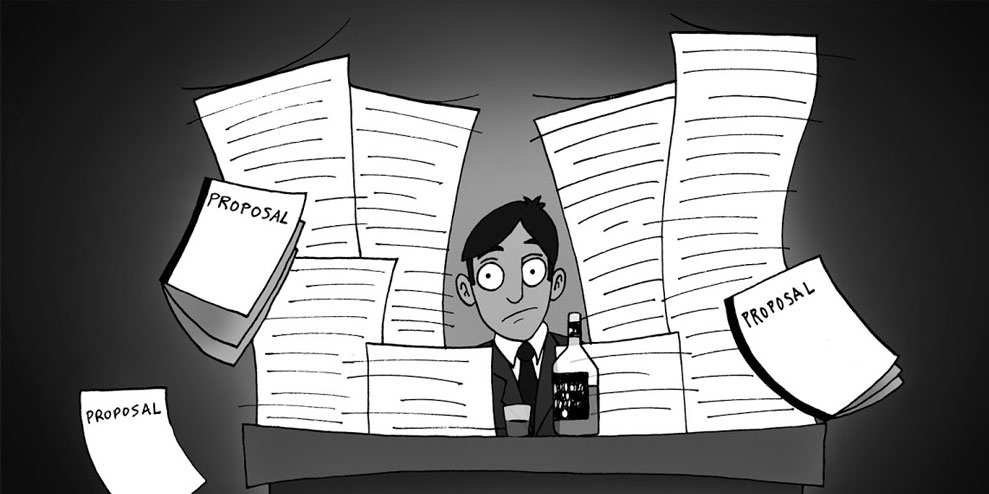The Advertising Agency Client RFP – Go Or No Go
As an agency owner and business development director at Saatchi, I received many RFP’s — Request For Proposals. The reaction to receiving an RFP ranged from delight (YES, a big brand and client is interested in us) to dismay (a brand is asking us to respond to what is clearly an assignment that is not predicated on the client’s understanding of what we do for a living (example, asking us to build Android apps when we didn’t).
Responding to an RFP can be very time consuming and expensive for any agency. The costs include direct labor, out of pocket costs and the cost of deflecting staff attention from existing client and business development work. I outlined the cost of responding to RFI’s, RFP’s and actual pitches in my book “The Levitan Pitch. Buy This Book. Win More Pitches”. Believe me, the costs can easily go into the thousands.
The bottom line is for your agency to have a clear set of rules that dictate when you should respond to an incoming RFP. Swinging at every ball is not a great way to hit home runs and manage your business.
Some RFP Related Expert Opinions
I am a member of a primarily senior client Slack group. I asked the group for their thoughts about the RFP process. My question was about how many agencies are sent an RFP for a given program.
THE PETER RFP QUESTION:
“Here’s a quick question for people that have asked advertising / design etc. agencies to respond to an RFP… How many shops did you ask when you sent out the RFP? I have an agency client that is now sitting on 3 RFP’s and is a bit overwhelmed. I’m helping them cull the list but have this general question. Thank you in advance for any help.”
ANSWERS:
Note, in the interest of privacy, I scrubbed out the name of the group members.
- Typically you go to 5-6, then cull to 3 agencies for a proposal. If it was a mailed RFP with no calls or capabilities first, don’t go after it.
- I’d also add from the agency side — try to get an intro call with the prospective client to talk through the RFP before you decide to submit and put the team through the proposal rigor. Sometimes once you get them on the phone — you often get a much better sense if you’ll be successful with each other.
- Also, it’s telling if they won’t speak to you before receiving a proposal

- Agree. Clients should do their homework and find the shops that they respect, thinking or work you admire vs. a fishing expedition. I usually advise around sending in the area of 6-7 with the expectation that 1-2 agencies will drop out / decline
- I agree. Somewhere in the 5-8 range feels right for an RFP. As a client, it is too much work to do more than that. If the client is not invested to really spend the time to determine if the fit is right, that tells you something. Personally, I have always liked our agency partners to feel like an extension of our team and respect what they bring to the table and the effort required to do the work.
PETER AGAIN
I agree that it is up to agency management to really look hard at an incoming RFP and determine if this is an account you really want, can get and is worth the big effort. As my friends mentioned, it is incumbent on agency leadership to learn more from the prospective client before answering the RFP. If the client does not have the time for a call… drop it.
BEING MR. NICE GUY…
If you have an RFP on your desk today and are not sure if you should respond, give me a shout. I’ll spend a few minutes helping you make that decision. Gratis.
–
This article first appeared in www.peterlevitan.com
Seeking to build and grow your brand using the force of consumer insight, strategic foresight, creative disruption and technology prowess? Talk to us at +9714 3867728 or mail: info@groupisd.com or visit www.groupisd.com


